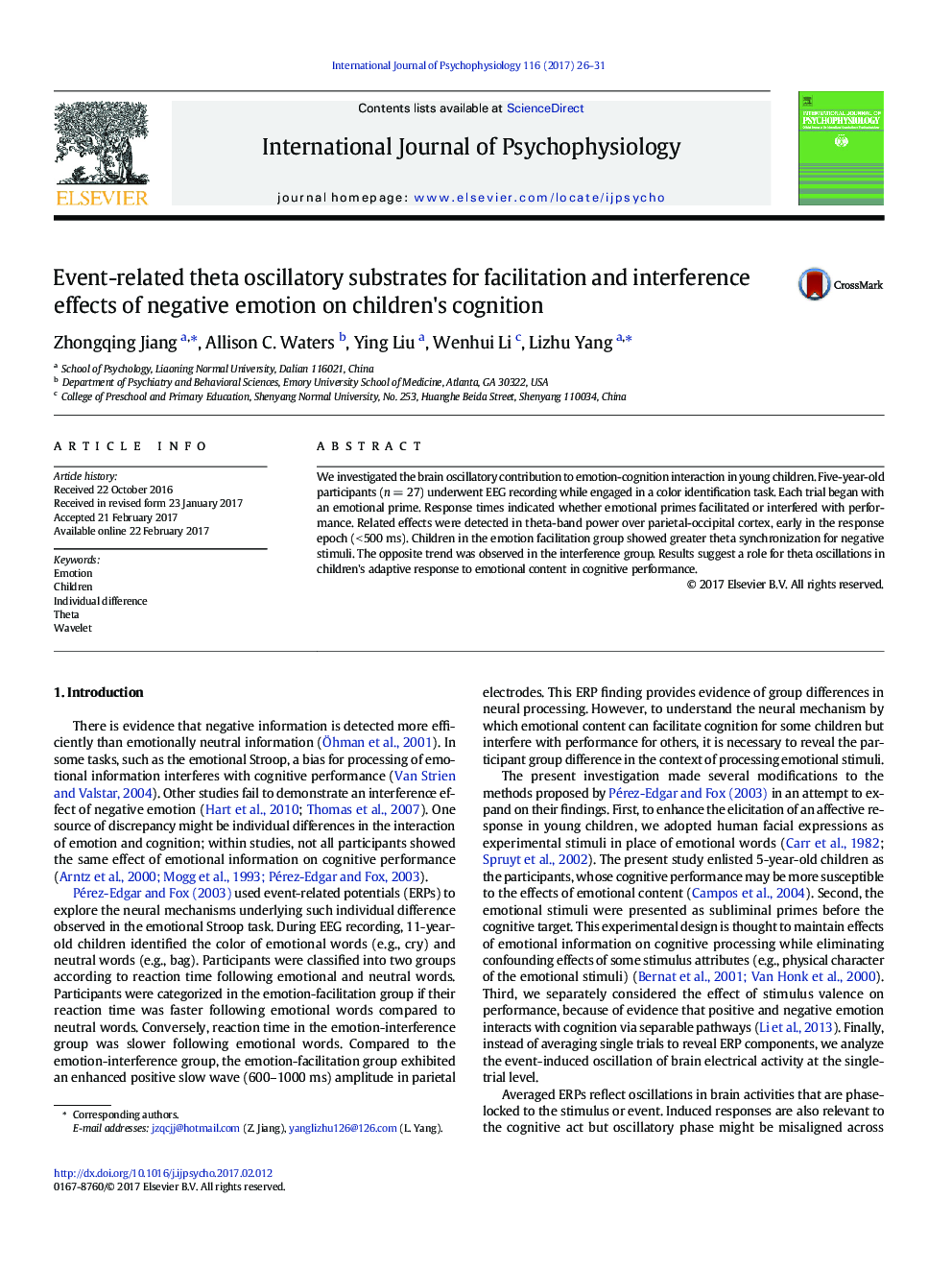| Article ID | Journal | Published Year | Pages | File Type |
|---|---|---|---|---|
| 5042292 | International Journal of Psychophysiology | 2017 | 6 Pages |
â¢We compared facilitation and interference effects of emotion on childrens' cognition.â¢We used wavelet analysis to investigate the underlying role of theta oscillations.â¢Emotion facilitation group had greater theta power for negative vs. neutral stimuli.â¢Theta oscillations index adaptive integration of emotion in cognition in children.
We investigated the brain oscillatory contribution to emotion-cognition interaction in young children. Five-year-old participants (n = 27) underwent EEG recording while engaged in a color identification task. Each trial began with an emotional prime. Response times indicated whether emotional primes facilitated or interfered with performance. Related effects were detected in theta-band power over parietal-occipital cortex, early in the response epoch (< 500 ms). Children in the emotion facilitation group showed greater theta synchronization for negative stimuli. The opposite trend was observed in the interference group. Results suggest a role for theta oscillations in children's adaptive response to emotional content in cognitive performance.
